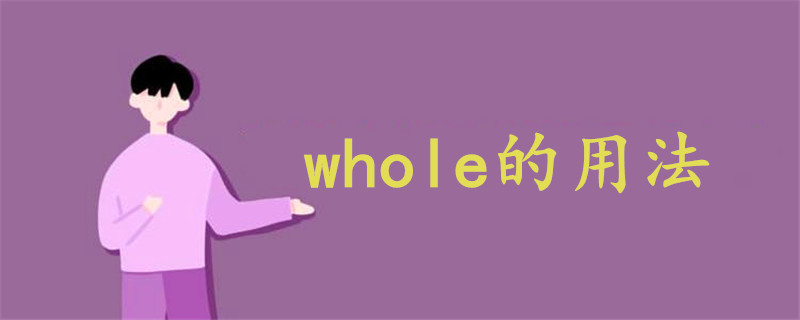whole的用法:whole可作名词,含义为“整体”、“所有”、“全体”,whole可作形容词,含义为“完整的”、“完全的”、“整个的”、“完好无损的”,一般位于冠词、所有格或别的限定词之后。

whole的基本意思及用法介绍
whole主要用作形容词、名词,作形容词时意为“完整的;纯粹的”,作名词时意为“整体;全部”。例句有:
1、We drank a whole bottle each.
我们每人都喝了整整一瓶。
2、We offer a whole variety of weekend breaks.
我们提供的周末假日活动丰富多彩,一应俱全。
3、Owls usually swallow their prey whole.
猫头鹰通常把猎物囫囵吞下。
4、The subjects of the curriculum form a coherent whole.
课程中的科目构成了一个连贯的整体。
5、The effects will last for the whole of his life.
这些将会持续影响他的一生。
6、It was like seeing a whole different side of somebody...
这就像是看到一个人完全不同的一面。
7、This study is the cornerstone of the whole research programme.
此项研究是整个研究计划的基础。
8、Pressure must be uniformly distributed over the whole surface.
压力必须均匀分布于整个表面。
9、There is still a risk that the whole deal will fall through.
整桩买卖化为泡影的风险仍然存在。
10、The whole experience was definitely more positive than negative.
整个经历当然是利多于弊。












